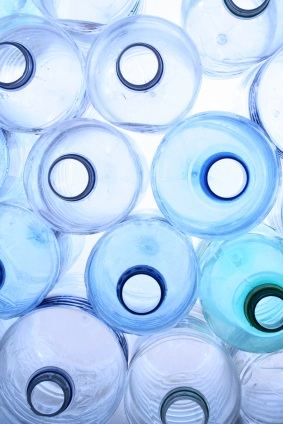Bisphenol A (BPA) continues to make headlines as researchers discover yet more health risks, the plastics industry gears up to fight regulations, consumers try to avoid it, more states pass resolutions banning it, and federal agencies struggle to do the right thing.
First, the bad news . . .
BPA is a chemical used in hard plastics and epoxy resins. BPA can be found in baby bottles, toys, canned foods, paper receipts, and other common products. Learn more.
BPA is a hormone-disrupting chemical, which means that it can mimic or block hormones and disrupt the body’s normal functions. Scientists have found that it can alter brain development in babies, even at extremely low levels, causing problems ranging from infertility to heart disease. Learn more.
Our nation’s outdated chemical policy allows chemical companies to put products like BPA on the market without testing their safety. Here are articles from the Washington Post and Fast Company showing how the plastic industry is trying to keep BPA on store shelves — and using old tactics from the tobacco wars.
What does the latest research show?
- BPA could raise risk of asthma in kids.
- Exposure to BPA may cause permanent fertility problems.
- Researchers finds BPA in half of cans studied.
- Study shows BPA affects male rat fertility for generations.
- Study shows that human placenta cells die after BPA exposure.
- Elevated amount of BPA can increase cardiac risk by 45%, study finds.
- BPA raised workers’ risk of sexual dysfunction, study says.
And now the good news….
There are ways to protect yourself and your family
2. Join the Safer Chemicals, Healthy Families coalition in asking Congress to update our lawsto protect us from harmful chemicals like BPA. Ask everyone you known to do the same
3. Try to limit your exposure to BPA. Here’s some good advice on how to do so:
- Two posts from Huffington Post blogger Jennifer Grayson. Part 1, Part 2
- Helpful Q&A from the Boston Globe
- Handy tips from USA Today
Five states across the nation have either passed or started the process of enacting statewide bans on BPA. And this action on the state level is inspiring change on the national level. Here’s the latest news analysis plus an update from the SaferStates network on what’s happening on the state level.
Federal agencies are starting to take BPA threat seriously
As Congress gets ready to consider legislation that may limit our exposure to BPA, federal agencies like the U.S. Environmental Protection Agency and the U.S. Federal Drug Administration are getting ready to respond. Here’s an editorial from the New York Times, news stories from the Milwaukee Journal Sentinel and Routers providing helpful context on what federal agencies are doing about BPA:
Retailers are starting to get it
After public outcry over the mounting scientific evidence of BPA toxicity, many retailers and manufacturers have taken their own initiatives to eliminate BPA from their products.
- Wal-Mart, Toys R Us, Target, and Sears are just a few of the national chains that are phasing out baby bottles containing BPA.
- The nation’s six largest baby bottle manufacturers announced in 2009 that they either have already eliminated or will phase out BPA.
- Sunoco, a chemical manufacturer, instituted a policy to no longer sell BPA for use in food and water containers intended for children under three.
- Several infant formula makers are already using in BPA-free packaging.




